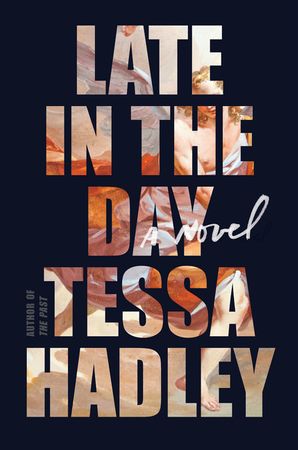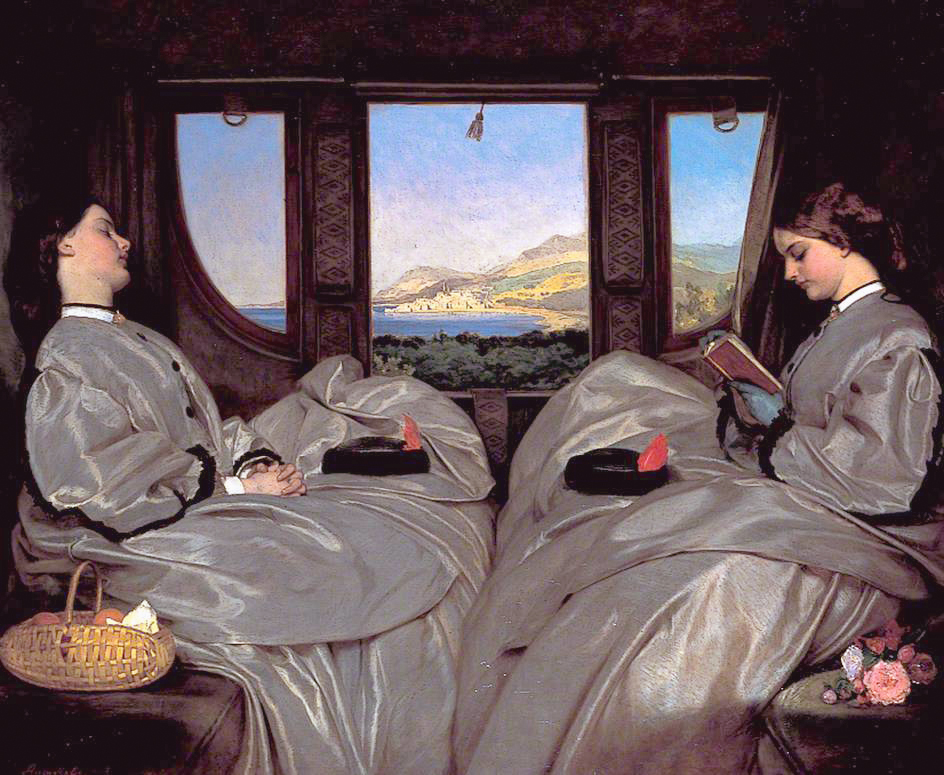Interviews
A Death Reverberates Through Two Marriages in “Late in the Day”
Author Tessa Hadley on art, mourning, and continuing to write while the world falls apart

Tessa Hadley is a writer who knows how to elevate the universal hunger for belonging — to ourselves and to each other — into something sacred. To belong is to love and be beloved, but belonging is also vulnerable to loss. In her latest novel, Late in the Day, Hadley writes about what happens to four friends who uniquely belong to one another. Lydia and Christine, Alex and Zach have been friends through many lives. Lydia and Christine have been friends since school, and Alex and Zach have, too.
Desire changes things for the better, it seems. Lydia marries Zach and Alex marries Christine and the four have what could easily be considered a dream situation. They all remain best friends, they raise their children beside one another. They belong to each other. It’s beautiful, it’s symmetrical. In sculpting out the immediate, interior personalities of Zach, Christine, Alex, and Lydia, Tessa Hadley is somehow also able to sketch in broader strokes what it means to live in a long marriage, what it means to be an artist, what it means to be a parent, what it means to be on one’s own.
All too quickly — for us, within the first few pages of the novel — death changes things for the worse, it seems. When Zachary dies suddenly, the lines of belonging slowly spin apart. The world is uneven after Zach leaves it: who belongs to whom now?
Tessa Hadley and I corresponded over email about what it means to be a woman holding the pen and why we need fiction.
Erin Bartnett: I wanted to start off by talking about time. The title of the book, Late in the Day gestures to a specific time, and the book structurally goes back and forth between the past, when Zach was alive, and the present, when Lydia, Alex, and Christine are mourning him.
Can you talk about how you came up with this structure? Did you know the book would begin with Zach’s end? Why was it important to have the past and present coexist in the narrative time of the novel?
Tessa Hadley: When I first conceived of the novel, its two long marriages twining around each other, I imagined it unfolding in simple time, chronologically. But as soon as I thought that the strongest thing I could do to my quartet of characters was to have one of them die, reduce the four to three, I felt it wasn’t possibly to merely have that occur in chronological time. It would have come about two thirds of the way through the book, let’s say. That would have seemed somehow malevolent towards the reader, like a mean trick I was holding up my sleeve the whole time, not letting on. If I was going to do something so cruel to the four characters, then it had to be the entrance into the book, it had to be there right at the beginning, the reader had to share the writer’s privilege to some extent, watching young Zachary and all of them young and heedless, and knowing what’s in store, all the readers’ perceptions changed by this as the protagonists’ can’t be.
The rest of the structure flowed from that. I think this is part of the great metaphysical potential of the novel form, that it puts the reader in a relation to time and experience which isn’t practicable or possible in ordinary life. It opens up for us a dizzying thought experiment with past and present, confronts the imagination with juxtapositions which aren’t actually available within the real flow of time.
EB: Marriage, to my mind, is a relationship that has a very intense relationship to time, and the ways we each experience time are different. Christine, reflecting on her marriage to Alex, muses: “Since that beginning, they had both changed their skins so often. Marriage simply meant that you hung on to each other through the succession of metamorphosis. Or failed to.” I wondered, what drew you to the subject of marriage, and what did you learn about it in writing this book?
TH: It’s such an old subject, and such a perennial one. We still do such a lot of it — and in fact this phenomenon of long, long marriages is new, just because we’re living so much longer. Even second and third marriages these days can last thirty or forty years or more!
A marriage is a perfect subject for a novel, because it fastens together two individuals inside a tightly constraining form.
A marriage is a perfect subject for a novel, because it fastens together two individuals — whose personalities may well be flying off in quite different directions, especially as time passes — inside a tightly constraining form. Tension works well to support a story: the flying-off energy, pushing against the force of the containment. Adultery by itself isn’t the great subject that it was in the 20th century, because less is at stake, it’s no longer tragic. And courtship too, because marriage isn’t irrevocable, isn’t interesting in quite the same way it was in so much art of the past. But marriage, with all its difficulty and comedy and cruelty and at best tenderness, still makes such a good shape for fiction.
In the case of heterosexual marriage, it’s interesting too to press men and women up against each other inside marriage’s tight circle, watch what they do, find out what they are and what they want, wonder why they seem so different. There ought to be good novels about long same-sex marriages or partnerships, but I can’t immediately think of any.
A marriage is a perfect subject for a novel, because it fastens together two individuals — whose personalities may well be flying off in quite different directions, especially as time passes — inside a tightly constraining form.
EB: Christine, Alex, and Lydia all mourn Zach’s death in different ways. But I was struck by the way the form of the novel could perform some of the unfathomable but very real ways I’ve experienced the feelings of mourning. We get the news that Zach is dead within the first few pages, but then we grow to know him, through flashes of the past and the people that knew him, and even though we know he’s dead, he comes to life in our heads. It was beautiful and also so sad! What was it like, writing a book about mourning? Did you feel yourself experiencing mourning in some ways, too?
TH: I was anxious, that the book would be too glum — and yet I also felt it was imperative, having chosen this story, to do real justice to the awfulness of what has happened, to their mourning. So I shuttled back and forth between those worries — not being too gloomy, but not scanting the sadness either. To use again the word that came to me in answering the previous question, I suppose it’s a kind of impersonation — you have to act out in words what you think that character would feel, how the death would smite them, knock them down. So it’s a funny mixture of quite ruthless imitation of life, working in a business-like way to get the truth on the page; and on the other hand “miming” in oneself all the wash of feelings of sadness and loss that the protagonists experience. So writing it is not at all like real mourning. But it’s not devoid of sincerity and empathy, either.
EB: As an extension of that, maybe, Christine has a creeping experience of creative block with her painting — so much so that she actually locks the door to her studio and hides the key. For Christine, her block happens simultaneously with her mourning, but the two experiences are not, I thought, expressed as one in the same. But they do inform one another. And both, in some way, liberate her. What is the relationship between creativity and mourning, do you think?
If you don’t relinquish yourself to naivety, give permission to the free flow of dream-invention, then you’ll never write anything alive.
TH: That’s difficult, and interesting, to answer. I suppose a death is the supreme test, really, of the whole relation between creativity and life. There’s always perhaps something shaming in the practice of art, in relation to the real. Painting — or writing, or film (music seems to be different) — usually attempts at least in some way to imitate the real, or to be “about it.” This work of representation has been fundamental to art from its beginning — in the cave paintings, say. But there’s always a kind of shame, when you look back from your drawing of a bull to the real bull. Not enough, the artist sees. Not whole, not the whole truth. Perhaps Zachary’s death has something like this effect on Christine. Her efforts to make work which represents life are made shaming by the intrusion of this worst possible reality. She loses her trust in herself, that what she has to show is adequate to this life, this death. She’s made inadequate by it. That’s one of the ways that mourning might be disabling. At least for a long time.
EB: Christine, Alex, Zach, and Lydia all have individual relationships with art that inform their relationships with one another, at times enhancing their relationships and at other times making them impossible. It isn’t easy. Why do you think it is so challenging to have both — to create art and a “live a life” with another human being?
TH: Another difficult question! Is it because in making art we’re reaching to transcend the limits of what we are? We seize authority, we assert, in paint or in words or on film, that we are more than our partial limited imperfect selves, we enact something bigger than ourselves. But of course in our daily lives we are only our partial imperfect limited selves, as our friends and family know well! So there’s always a slight disconnect, a bit awkward and humiliating, between the aspiring dream of art and its necessary hubris, and the stumbling earthbound reality of the rest of our lives.
EB: There was a line from Zach about the way time and creativity are experienced differently for men and women. Right after Alex admits to Zach that he’s afraid he can’t write because everything important has already happened and been written about, Zach asks: “Do you think it’s a male thing?…Because the pen has been in the male hand and all that, for so long. Now that women have picked up the pen — for writing, for painting, for everything — they may feel all kinds of doubt but not that one. Because they’re not belated. As women, they’re still near the beginning.”
What was it like writing (or typing) those lines out, as a woman holding the pen? Do you think women and men are on a different timeline, creatively speaking? Why or why not?
TH: I loved typing out those lines. I’m quoting a little from Jane Austen (or Zachary is), when in a marvelous scene in Persuasion Anne Elliot is talking with Captain Benwick about whether men or women are the most constant lovers. He says that poetry shows it’s men who are most faithful, but then adds thoughtfully that of course Anne won’t accept that, will she? Because the poets have mostly been men, the pen has been in their hands… I love Austen’s subtlety, by the way, that she gives this good point to the man. So deliciously un-smug.
It is a thought I’ve had about fiction sometimes, about the mid-20th century in particular, that when so many men were declaring the end of the illusionistic novel with its imitation of life — implying it was a form fit for credulous women and children, creating a lot of angst among novelists over the validity of what they were doing — certain women writers carried doggedly on trying new things with the old form. I mean for instance Elizabeth Bowen and Elizabeth Taylor, Rumer Godden, favorites of mine. They had too much to say to give up the illusionistic novel form to intellectual despair. Of course women had been writing novels in English from the beginning. But still, women were so new in art. They had such stories to tell, from their perspective. No wonder the men, after all those millennia of creativity, were exhausted and disenchanted, had seen through all the tricks. But it was all relatively new to the women, they weren’t ready to give it up yet!
I may just be fanciful in imagining this version of literary history. Anyway, I gave my fanciful thought to Zachary, only translated into the field of the visual arts.
EB: Another kind of creative block happens for Alex, meanwhile, who admits to Zach: “I’ve always felt that was my task: to be vigilant against liking the wrong things. But it’s a mistake, perhaps. I suppose it’s what stopped me writing….The heavy hand of the critical law on the scribbler’s hunched shoulder. Thou shalt not!” In your own writing, as I understand it, you wrote four novels which, you mention in an interview with The Guardian, were “no good,” but you continued to write. How did you keep the “heavy hand of the critical law” from paralyzing you in your work early on? And now?
Our present will soon pour into oblivion along with all the other infinitude of presents that have gone before it.
TH: One’s relation to that critical hand is so ambivalent. I think I felt it on my shoulder very heavily and inhibitingly, writing those bad books. I thought I had to write the books somebody else high-minded would approve of. In order to write better I had to get out from underneath that hand and take the risk of being foolish. There’s some profound naivety built into the foundations of fiction, which is make-believe. If you don’t relinquish yourself to that naivety, give permission to the free flow of dream-invention, then you’ll never write anything alive. I think Alex couldn’t allow himself to write naively.
And yet — one doesn’t want to write like a dreamy idiot either. So “Thou shalt not!” is inhibiting and also teaches you how to do the thing properly. Thou shalt not be banal. Thou shalt not say the same thing twice. Thou shalt not be overblown or unclear… It’s a dodgem course, dodging between doubt and hope with each sentence you write.
EB: In that same interview, you mention the anxiety you feel writing novels in this current moment: “What am I doing wasting my time on this, when the world is going to hell in a handcart?” How do you get over that feeling?
TH: Probably you simply shouldn’t get over it. You should balance somehow in your head all the time you write that what you’re doing is so tiny and irrelevant — and yet concede that it may also be the best thing you can do, or the only thing. The only justification I can think of for writing novels about — let’s say, in Late in the Day — a small group of educated fortunate middle-class Londoners and their emotions and experiences, which might seem not “relevant” at all to the world’s great crises, brings us back again to where we began, with time.
The present feels so substantial and self-evident when it’s all around us. But it’s rushing away like a fast silent river in the dark, falling over the invisible waterfall some little distance ahead of where we are. Our present will soon pour into oblivion along with all the other infinitude of presents that have gone before it. I suppose I want to dip my sieve into that rushing river of present moments and hold back some flotsam and jetsam of detail, almost like an anthropologist — just to make a picture, for as long as this present lasts, of what it feels like and what it means for these kind of people to live, just here and just now.









